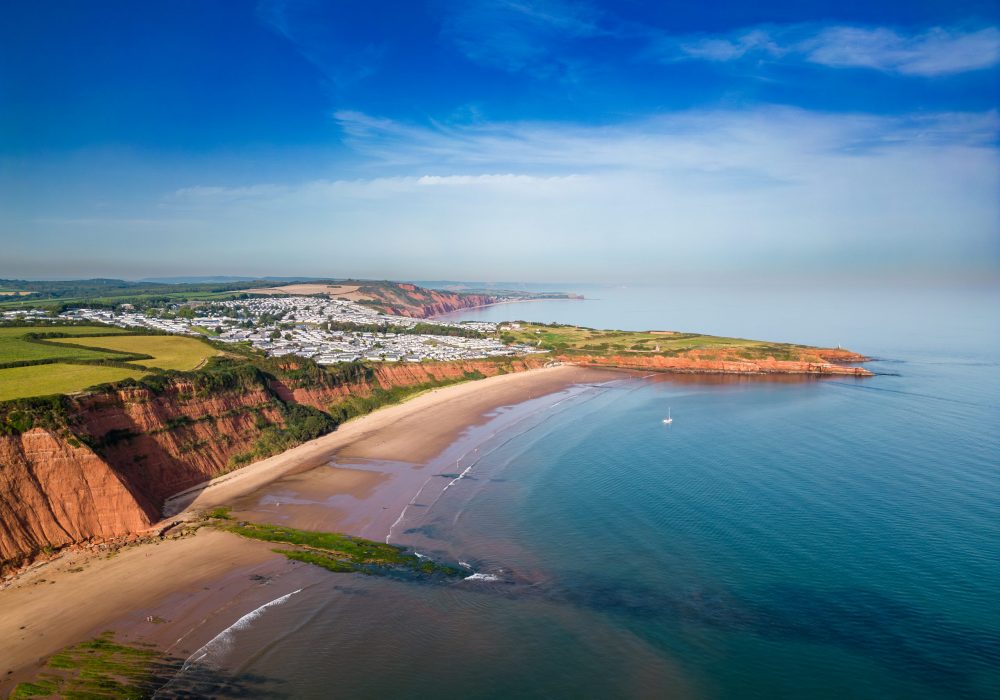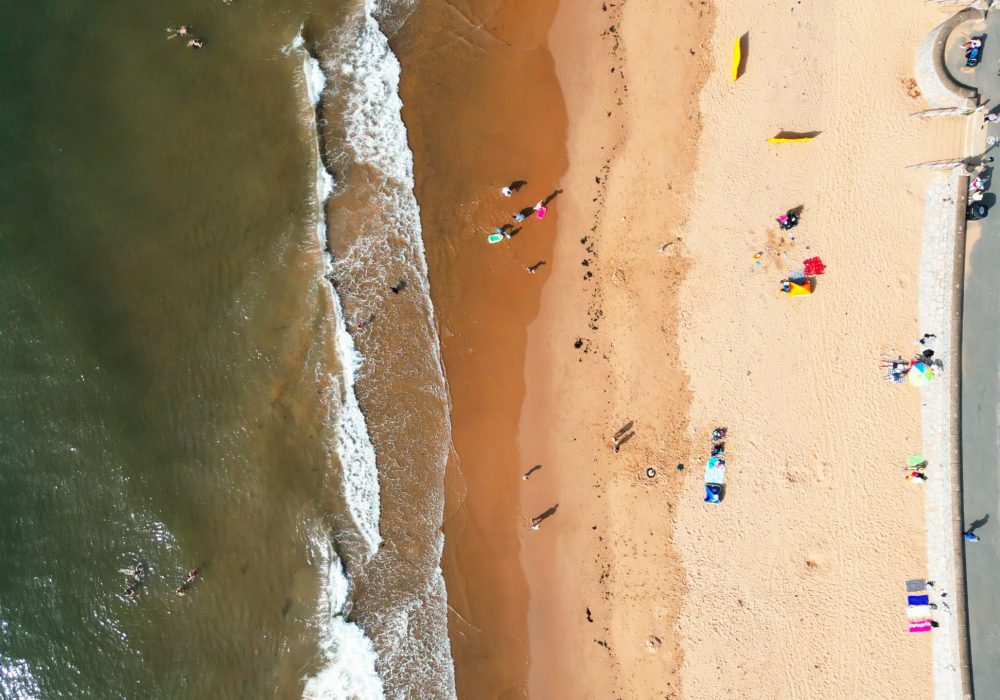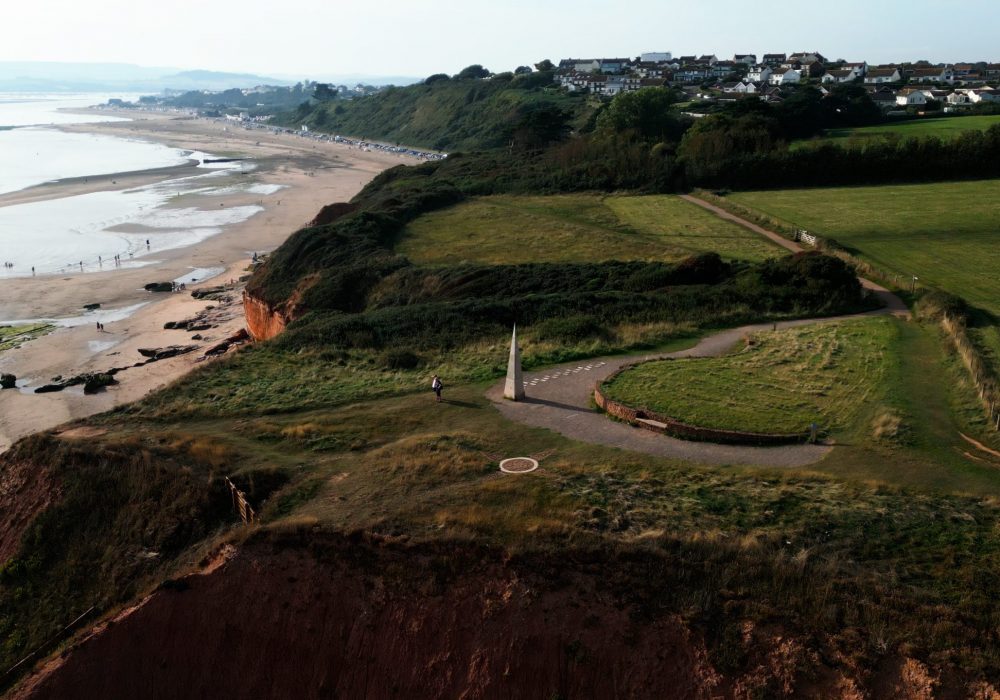Natural Beauty
This is a living, working landscape, shaped by many centuries of farming activity. Whether you’re a visitor to Exmouth, or a local looking for somewhere special to go for the day, there are numerous opportunities to get up close and personal with nature!
Exmouth Local Nature Reserve
Exmouth Local Nature Reserve is a massive area of tidal sand and mud at the southern end of the Exe Estuary. In the autumn, thousands of birds fly from the freezing Arctic to spend the winter months on the estuary, one of Devon’s most impressive natural spectacles.
Dark-Bellied Brent Geese make their way to this place every year in September and during the winter months other wildfowl crowd into the estuary to feed. Look out for huge flocks of Wigeon and graceful Pintail Ducks.
The Exe Estuary Management Partnership has produced a variety of publications on different aspects of the Exe Estuary. These can be picked up from the Tourist Information Office, or viewed and downloaded from its website:
- Exe Wildlife Leaflet — A guide to when and where to see some of the wildlife highlights on the globally important and protected Exe Estuary.
- Exe Explorer Leaflet — With the help of the Exe Explorer leaflet you can find a variety of routes which will enable you to explore the whole Estuary in a day.
- Exe Activities Leaflet — A guide to the recreational activities available to enjoy in and around the Exe. A map shows the location of activities, clubs and organisations who can provide more detailed local information about the various water sports and leisure pursuits available as well as their contact information.
The Maer Local Nature Reserve
Just a few steps from the beach, The Maer Local Nature Reserve lies behind the sand dunes on the seafront where the warm sandy soil provides a haven for insects. If you are lucky, you might even see one of the rare skylarks which still regularly use the Maer in the summer months for breeding.
The Maer is also a popular place to have a barbecue; East Devon District Council maintains a number of BBQ’s on the site which are available to use free of charge, on a first-come, first-served basis.
East Devon District Council’s Countryside Team and its partners publish an events guide with information about a wide range of events for all the family, including Exmouth mud walks where you can dig for worms, fish for shrimp, and discover what is living in the mud of the Exe Estuary.
For more information, pick up a guide from the Tourist Information Office or visit the website.
Bystock Nature Reserve
Also called Bystock Pools, Bystock Nature Reserve is Exmouth’s ‘jewel in the crown’ and boasts heath, grass, scrub, woodland and pools. In 2016 Devon Wildlife Trust became the proud owner of Bystock Pools Nature Reserve and the Trust provides many opportunities to get involved, including a local volunteer group and practical conservation tasks. Wild walking routes around the reserves are clearly marked with paths. Allow one hour to complete a circular walk, or try the Bystock Wild Walk, a more adventurous 6 mile walk which takes in the nature reserve and the countryside around it.
The Devon Wildlife Trust also owns part of the Dawlish Warren Reserve, which can be reached by ferry or train from the Avocet Line.
RSPB
The Exe Estuary is famous for the huge number of birds which over-winter in the area (including avocets, black-tailed godwits, bar-tailed godwits and brent geese). The RSPB, in conjunction with The Avocet Line Rail Users Group (ALRUG), has produced a leaflet with details of where to watch birds on the Exe.
You can download the guide from the Avocet Line website here.
There’s an RSPB shop and visitor centre at the Darts Farm shopping village, just outside Topsham and close to Bowling Green Marsh which overlooks the Clyst. At Darts Farm, there’s also an award-winning farm shop, delicatessen, butchers, and various shops.
The RSPB organises regular wildlife cruises on the River Exe from November through to March each year. RSPB guides are present on each sailing so the cruises are excellent fun for beginners and experts alike. Details of the forthcoming cruises, which start from Trout’s Boatyard in Topsham, can be found on the RSPB website.
Stuart Line Cruises also organises Guided Bird Watching Cruises. The cruises last around three hours and include commentary.
National Trust
The National Trust often hosts events, including family muck in days and countryside ranger days. Lower Halsdon Farm is a tenanted farm which overlooks the Exe Estuary, owned by The National Trust, and its tea garden offers a selection of refreshments, see opening times on their website.
East Devon Area of Outstanding Natural Beauty
The East Devon AONB landscape is characterised by intimate wooded combes, vast areas of heathland, fertile river valleys and breathtaking coastal and hilltop views. It includes the East Devon section of the Jurassic Coast, England’s first natural World Heritage Site.
Pebblebed Heaths
East Devon Pebblebed Heaths are managed by the Pebblebed Heaths Conservation Trust, a conservation charity established by Clinton Devon Estates in 2006 to manage this unique wildlife habitat situated close to Exmouth.
Designated a Site of Special Scientific Interest, a Special Area of Conservation and a Special Protection Area, this area represents one of the most important conservation sites in Europe.
A Walker’s Guide is available covering just a few of the walking options and the annual Heath Week Family Festival at Woodbury Common offers lots of opportunities to celebrate the beautiful heathland landscapes of East Devon.
Gardens
Several gardens in the local vicinity are open as part of either the National Garden Scheme or the Hospiscare Open Gardens Scheme. –
The Lookout
Featured in Alan Titchmarsh’s top 10 ‘most challenging gardens’, The Lookout is a seaside garden which runs down to the foreshore of the Exe Estuary in Lymsptone. Created from a derelict 1920’s shellfish purification station, The Lookout is open as part of the National Garden Scheme.
Bicton Gardens
Spanning nearly 300 years of horticultural history, the magnificent, grade 1 listed Bicton Gardens are set in the picturesque Otter Valley, just a short drive from Exmouth.
The landscaped park combines 18th century tranquillity with modern amenities to provide year-round enjoyment for all ages, including historic glasshouses, a countryside museum, the Bicton Woodland Railway train ride, nature trail, maze, mini golf, indoor & outdoor children’s play complexes, restaurant, and shop. Bicton’s Picnic concerts are always well attended.






